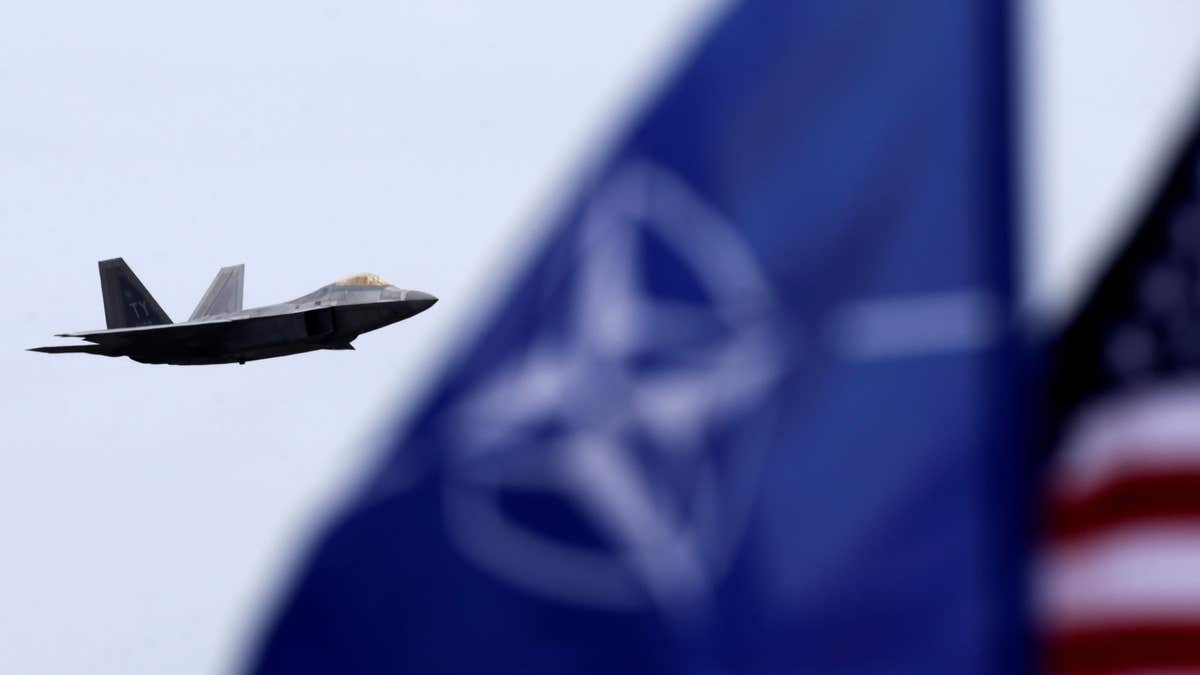
April 27, 2016: NATO and U.S. flags flutter as U.S. Air Force F-22 Raptor fighter flies over the military air base in Siauliai, Lithuania. (Reuters)
NATO allies reportedly plan to put four battalions in Poland and other Baltic countries to beef up its Russian border as Moscow steps up military activity.
According to The Wall Street Journal Friday, U.S. Deputy Defense Secretary Robert Work confirmed the overall size of the force – about 4,000 troops – and said the reinforcements were a response to the increased Russian activity around the nations of Lithuania, Latvia and Estonia.
Western officials told the paper that the U.S. will likely provide two of the battalions and Germany and Britain will likely supply the other two.
“The Russians have been doing a lot of snap exercises right up against the borders, with a lot of troops,” Work said. “From our perspective, we could argue this is extraordinarily provocative behavior.”
Russia has repeatedly defended its increased military activity, saying they are a response to NATO’s buildup and aggressiveness toward Moscow.
NATO officials said they want to make sure the force is as multinational as possible and are asking smaller allied countries to make contributions to supporting forces. Officials said Germany’s role is particularly important because their Russian deterrence cements Berlin’s role as a major player in NATO.
The Journal notes that Germany’s move is unlikely to go over well. But Chancellor Angela Merkel and her top officials have been pushing to make a bigger play on international security matters. German officials are eyeing to lead a Lithuania-based battalion, but haven’t come to an official decision.
Work said the exact U.S. contribution to the battalions were still being discussed and could be drawn from separate brigades the U.S. has said it would rotate in and out of Europe.
Tension between the U.S. and Russia has only increased in the last month after Russian jets have repeatedly buzzed U.S. warplanes and a Navy destroyer in the Baltic Sea. Work said the Baltic buzz was too provocative of a maneuver and Secretary of State John Kerry said the Navy could’ve shot the plane down.
“I grew up in the Cold War in the military, and when I heard the Russians buzzed the Donald Cook I said, ‘What is new?’ But it was really new,” Work said. “This type of activity, this type of repeated simulated attack runs, at an extremely low level is unsafe and dangerous.”
Russian defended its actions, saying the U.S. was operating too close to its military bases in Kalingrad.
Work said that more work has to be done to avoid a potential accident or crisis. The battalions need to be seen as a real deterrent against Russian aggression, U.S. and NATO officials have said.








































